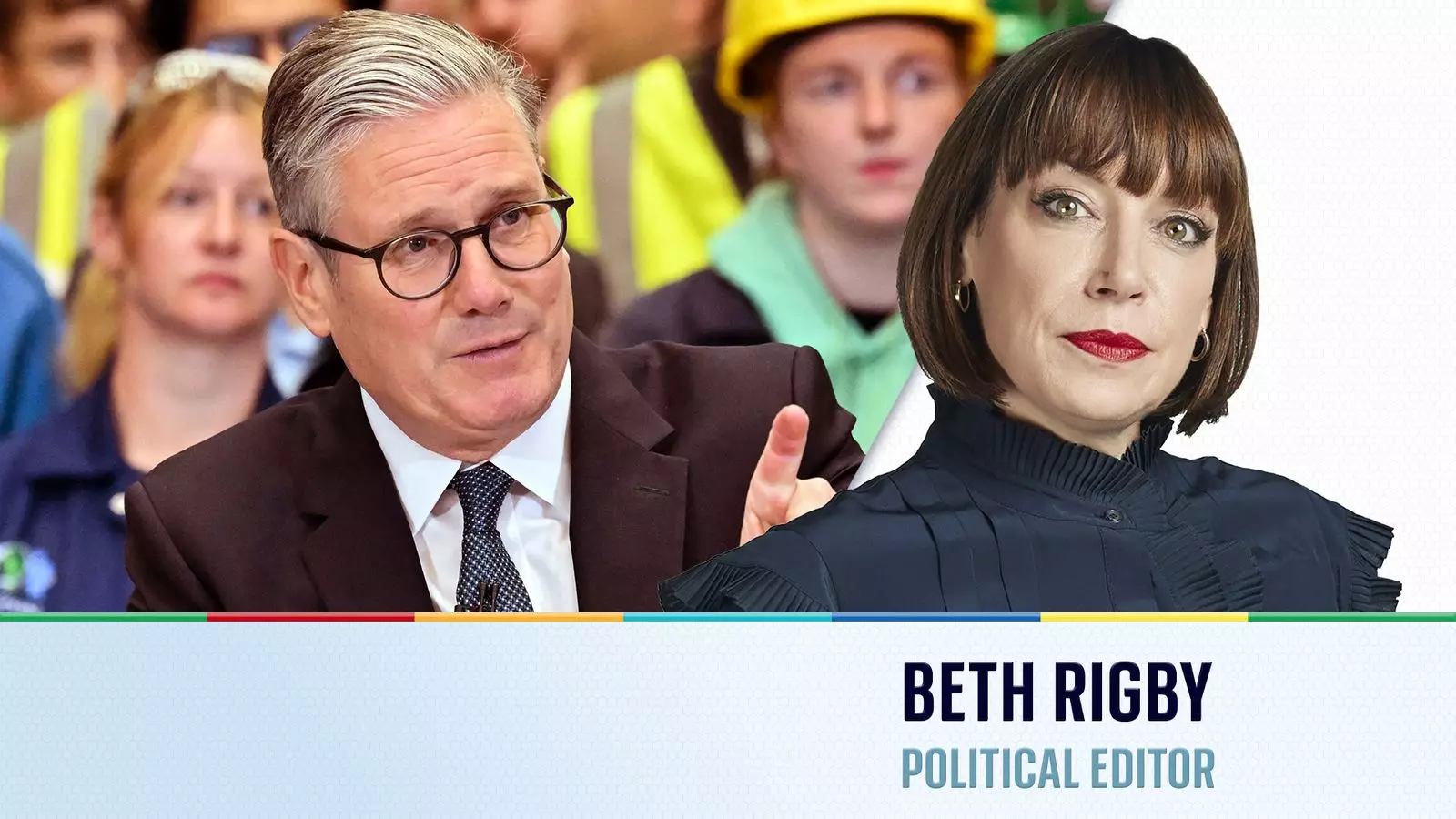In a dramatic pivot that echoes through the annuls of British history, Keir Starmer has positioned himself as a contemporary leader intent on reshaping the landscape of national security. At a significant shipbuilding yard in Glasgow, he proclaimed the urgency of transforming the United Kingdom into a “warfare-ready state.” This alarming shift in focus from welfare to warfare signifies not merely a change in defence policy but reflects a deeper ideological dilemma facing contemporary leadership within the Labour Party. By declaring the necessity to prepare for potential conflict—a threat he argues is more acute than at any time since the Cold War—Starmer is appealing to the primal instincts of national security, while simultaneously endangering the fabric of social welfare that has long been a cornerstone of Labour values.
The Illusion of Security Amidst Economic Realities
What is particularly striking about Starmer’s assertion is the paradoxical relationship it exposes between military readiness and economic prudence. He champions the necessity for the UK’s armed forces to bolster their “war-fighting readiness,” yet occasions worrisome silence when pressed about the logistics—specifically, the contentious commitment to increase defence spending to 3% of GDP. The vagueness surrounding when this monumental fiscal commitment will materialize undermines his position and raises questions about the long-term sustainability of his strategy. It becomes painfully obvious that while Starmer thrives on grandiose rhetoric, he is shackled by the same economic realities that have plagued his predecessors.
Are We Sacrificing Welfare for War?
In a nation already grappling with challenging economic conditions, the impulse to escalate military expenditures while sidestepping critical welfare needs raises ethical dilemmas. Starmer’s vague promises of a fortified defence posture come at a time when voters are looking for assurances that their pressing needs—housing, healthcare, and pension security—will not be compromised in the name of state security. For instance, his government’s reconsideration of cuts to pensioners’ winter fuel allowances, a decision based on apparent electoral backlash, only reinforces the notion that the Labour leadership is caught in a cycle of contradiction and inconsistency. Is it possible for a leader so fixated on preparing for war to also safeguard the welfare apparatus that supports the most vulnerable in society?
The Difficult Choices That Loom Large
The critical question then becomes: what sacrifices is Starmer willing to make to balance these conflicting agendas? Reports suggest that meeting the 3% GDP target for defence could necessitate a staggering £13 billion increase in spending. Given the backdrop of scaling back important social programs, one is left to wonder if the Prime Minister’s love affair with military rhetoric is tantamount to feeding a beast while starving essential services. Omissions and evasions on whether redistributing budgetary resources from welfare to defence are on the table may ultimately backfire, leading to a loss of trust from constituents who might perceive these moves as prioritizing military ambitions over social obligation.
Is Starmer Ready for the Political Fallout?
Furthermore, the political implications of Starmer’s strategy cannot be overlooked. By aligning his leadership with a more militaristic vision, he invites an examination of his fidelity to the founding principles of the Labour Party. Historically, the party’s identity has been intertwined with advancing social equity and justice. Starmer must navigate the treacherous waters of public sentiment, balancing national security needs with a populace increasingly skeptical of war. If voters perceive that sacrifices to social programs are being made solely to fund a burgeoning military agenda, disillusionment may follow, endangering his legitimacy as a leader grounded in progressive values.
Starmer stands at a crucial juncture where the choices he makes may not only define his time in office but also redefine the Labour Party’s very essence. The question remains: can he achieve the dual objectives of preparing for potential conflict while simultaneously upholding the welfare state that so many depend on? In this moment of turmoil and uncertainty, the stakes have never been higher, and the illusions of warfare must beware the harsh realities of welfare.


Leave a Reply